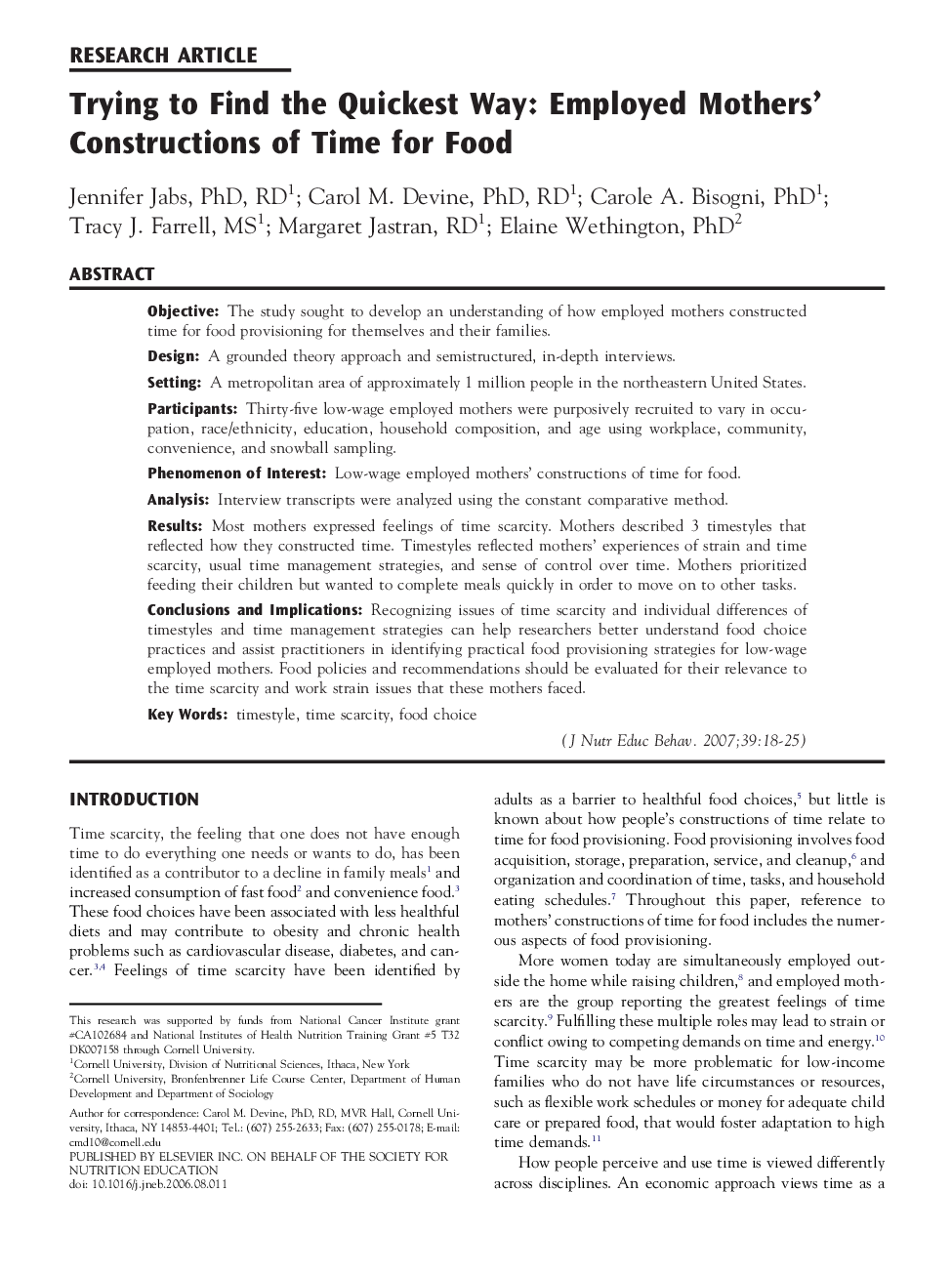| Article ID | Journal | Published Year | Pages | File Type |
|---|---|---|---|---|
| 363228 | Journal of Nutrition Education and Behavior | 2007 | 8 Pages |
ObjectiveThe study sought to develop an understanding of how employed mothers constructed time for food provisioning for themselves and their families.DesignA grounded theory approach and semistructured, in-depth interviews.SettingA metropolitan area of approximately 1 million people in the northeastern United States.ParticipantsThirty-five low-wage employed mothers were purposively recruited to vary in occupation, race/ethnicity, education, household composition, and age using workplace, community, convenience, and snowball sampling.Phenomenon of InterestLow-wage employed mothers’ constructions of time for food.AnalysisInterview transcripts were analyzed using the constant comparative method.ResultsMost mothers expressed feelings of time scarcity. Mothers described 3 timestyles that reflected how they constructed time. Timestyles reflected mothers’ experiences of strain and time scarcity, usual time management strategies, and sense of control over time. Mothers prioritized feeding their children but wanted to complete meals quickly in order to move on to other tasks.Conclusions and ImplicationsRecognizing issues of time scarcity and individual differences of timestyles and time management strategies can help researchers better understand food choice practices and assist practitioners in identifying practical food provisioning strategies for low-wage employed mothers. Food policies and recommendations should be evaluated for their relevance to the time scarcity and work strain issues that these mothers faced.
